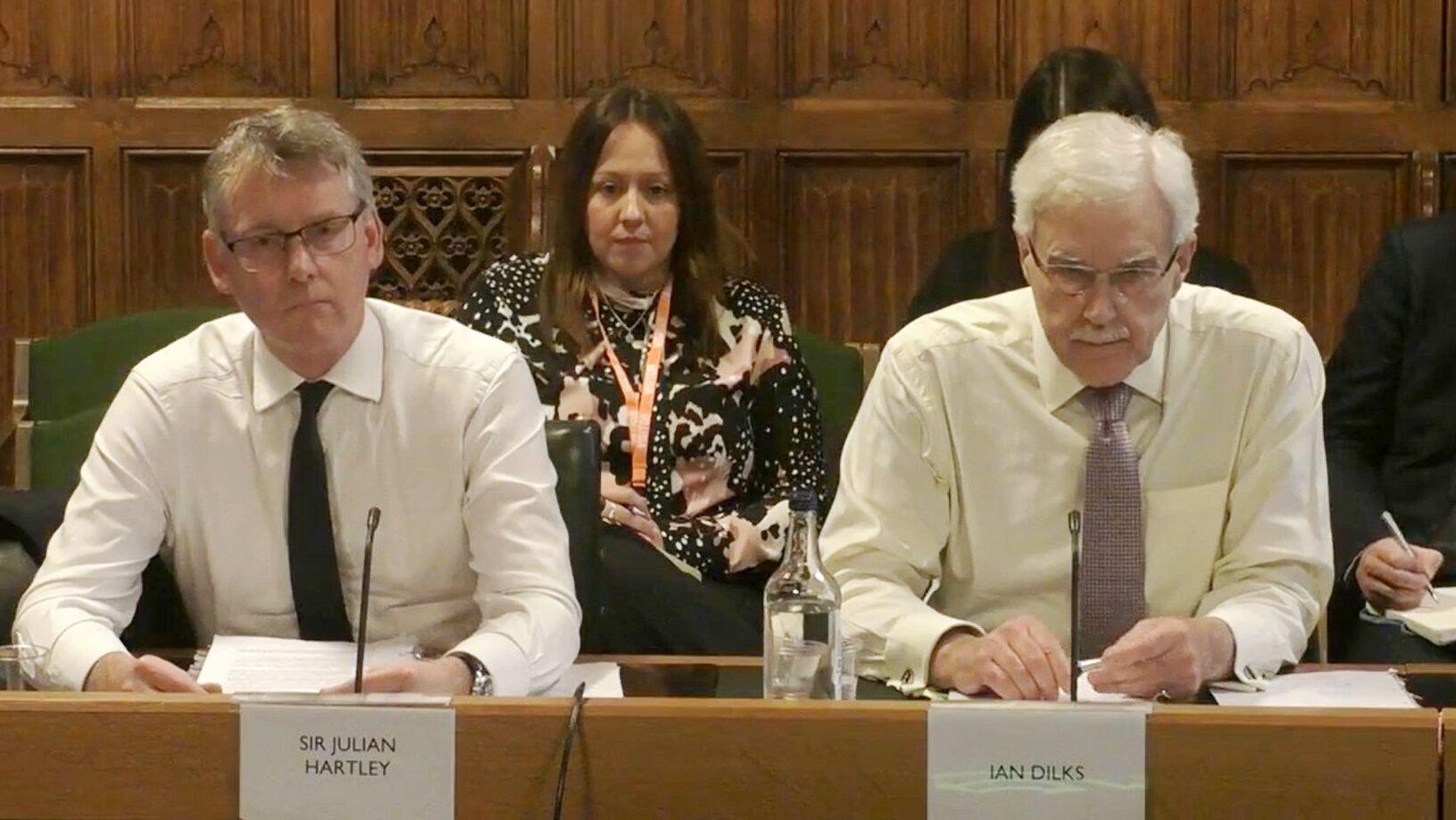Is there a plan for our workforce in Wales?
With its population and NHS workforce ageing fast, Wales needs urgent action to boost skills and recruitment across health and social care.

The health and social care system in Wales faces a crisis. Although many local and national initiatives are being tried, experts warns there is still no comprehensive vision for the NHS workforce in Wales.
Professor Sir Mansel Aylward, chair of Public Health Wales says “it’s going to be difficult to plan effectively, authoritatively and strategically for recruitment, training and retention until we have a vision.” And he wants that vision to be both “disruptive” and “prudent”.
- Caring for those with the greatest need first, using skills and resources accordingly
- Doing only what is needed and doing no harm – no more, no less
- Reducing unnecessary variation by using evidence-based practice consistently and transparently.
“What’s evident to me is that at the present time we do not have a workforce that meets the needs required for the proper application of a prudent health model,” Aylward adds.
Ageing fast
As a nation, Wales is ageing fast. The number of over 65s is expected to rise from around 75,000 to 183,000 over the next two decades and, by 2039, for every 100 working age adults there will be 48 people aged over 65. A third of the adult population has at least one chronic health condition and nearly two-thirds of adults and one third of children are overweight or obese.
At the same time, NHS Wales has an ageing workforce. A quarter of GPs are aged 55 or over, as are one in four midwives and 15% of nurses. The Welsh Assembly’s health, social care and sport commitee recently heard that some GPs routinely see more than 100 patients during a consultation session, and that 400 GP posts and 40% of hospital consultant posts in Wales are vacant.
“Clearly this situation is unsustainable” says Caroline Jones, Welsh Assembly Member for South Wales West, who sits on the committee. She points to the committee’s recent inquiry into medical recruitment, which found that staff who train in Wales were much more likely to stay working in Wales. “We need to train more of our doctors and nurses right here in Wales,” says Jones. “We cannot allow ourselves to become reliant on overseas workers. We need innovative solutions to how we can encourage, train and retain a home-grown workforce.”
Missing nurses
Nurses, doctors, and social care leaders are singing from the same song-sheet. Some cautiously suggest attaching strings to the “golden handshake” recruitment incentives used to attract GPs to rural areas, binding them to working in Wales for a fixed period.
Recent figures suggest that there are around 1,200 nursing vacancies in NHS Wales, with a further 1,700 across the not-for-profit and private sectors. In 2015-16, NHS Wales spent more than £48m on agency nurses – enough to pay for 2,000 newly-qualified nurses.
But there is cause for some optimism. The bold campaign by the RCN in Wales for legislation to link nursing staff levels to patient numbers resulted in the Nurse Staffing Levels Act (Wales) becoming law last year.
A first in Europe, the law now gives Welsh Health Boards the duty to ensure appropriate and safe levels of nursing on acute medical and surgical wards. The RCN is currently in discussions about how it could be implemented in the other three UK nations.
Severe pressure on social care workers
Social care faces different but no less severe pressures. 96% of care in Wales is provided by unpaid carers or family members, and 70% of the Welsh population are expected to need some form of social care in the future. There is already significant strain on the 80,000-strong social care workforce.
It costs at least £3,000 to recruit and provide initial training to a care worker, and high turnover and recruitment costs are a significant problem. Turnover rates vary between 5% for qualified social workers to 30% for domiciliary care workers. In rural Powys, 46% of staff in 2016 had been recruited within the last year.

“Integration is a hot topic and there are many challenges – one of them is differences in terms and conditions,” she explains. Social care employers complain that they spend a lot of time and money upskilling and training workers, only for them to leave as soon as an NHS vacancy arises, she says.
NHS jobs more attractive
Andy Hardy, MiP’s national officer for Wales and South West England, says jobs in NHS Wales are more attractive than those in social care. “Pay rates are relatively good and health boards have decent all-Wales policies. The NHS is safe, works jointly with trade unions, and there’s no Private Finance Initiative.
“In contrast, across the border in England, care companies have a high blame and ‘churn and burn’ culture, with low pay levels and unforgiving targets,” he adds. “I’m sure if Wales can step up to the social care challenge with co-operation from all interested parties – trade unions and Welsh inspectorate bodies included – then they’ll make it a success.”
Hardy believes the Welsh Government’s commitment to retain bursaries for nurse training – recently abolished in England – may prove significant. “A commitment to working in Wales for a period after qualification in my view is fair and will help with retention and loyalty of staff,” he says.
“I have a lot of members in England who ask me about any vacancies in Wales,” he adds. “Due to larger health boards, terms and conditions are a lot easier to manage with regard to negotiating machinery and forums, and I see genuine pride in NHS Wales – staff want the health service to succeed and thrive, from Band 1 and 2 workers right up to the Chief Executive.”
New training programmes
Health and social care has been made a priority in the sector reviews of vocational qualifications being carried out by Qualifications Wales – the body set up in 2015 to make sure the qualification system in Wales meets learners’ and employers’ needs.
This ties in with moves to register all home care workers in Wales from 2020, and all care home staff from 2022. The aim is to boost professional standards and reassure the public that care staff are fit to practice. A three-year development programme for home care workers started in April, and the register opens in April 2018.
Another pioneering scheme is the new curriculum at Cardiff University Medical School, which offers inter-disciplinary training so that medical students, nurses, midwives and physiotherapists can work together and understand each other’s jobs. GP clustering in Wales offers another opportunity for inter-disciplinary training and collaborative working, with Caerphilly Social Services, for example, basing some social workers at one of the town’s GP practices.
Health minister Vaughan Gething says it will “create an environment in Wales which builds a culture that supports learning in the working environment, attracting and retaining the best people possible, on a cross Wales basis.”
Related News
-

Regulating the managers: more questions than answers
The Labour government’s plans for regulating NHS managers are still shrouded in mystery, and the three options on the table each have their pros and cons. Rhys McKenzie weighs up the choices and gauges the views of MiP members on the best way forward.
-

The inspector falls: why the CQC needs a fresh start
After years of chaos, the Care Quality Commission urgently needs to rebuild trust and credibility with the public and the services it regulates. What needs to change and what are the priorities for new boss Sir Julian Hartley? Alison Moore reports.
-

Voice, value and vision: what analysts need from the NHS
Data analysts play a vital role in an NHS which is increasingly data-driven and focused on public health trends. But the NHS faces fierce competition for skilled analysts and many feel the health service fails to value them or fully use their talents. Alison Moore reports.